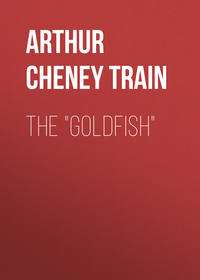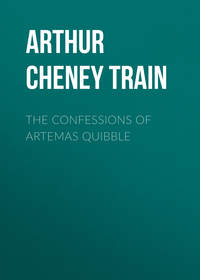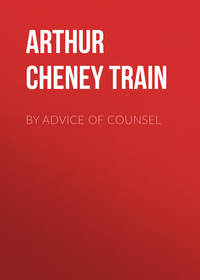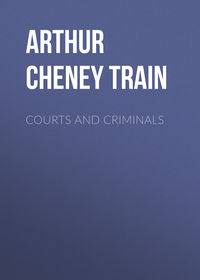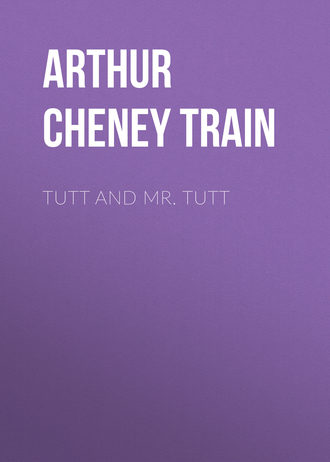 полная версия
полная версияTutt and Mr. Tutt
And then one morning something happened that upset his equanimity entirely. He had just started out for a walk in the park when a flashy person who looked like an actor walked impudently up to him and handed him a piece of paper in which was wrapped a silver half dollar. In a word Mr. Hepplewhite was subpoenaed and the nervous excitement attendant upon that operation nearly caused his collapse. For he was thereby commanded to appear before the Court of General Sessions of the Peace upon the following Monday at ten a. m. as a witness in a criminal action prosecuted by the People of the State of New York against Hans Schmidt. Moreover, the paper was a dirty-brown color and bore the awful name of Tutt. He returned immediately to the house and telephoned for Mr. Edgerton, his lawyer, who at once jumped into a taxi on the corner of Wall and Broad Streets and hurried uptown.
"Edgerton," said Hepplewhite faintly as the lawyer entered his library, "this whole unfortunate affair has almost made me sick. I had nothing to do with the arrest of this man Schmidt. The police did everything. And now I'm ordered to appear as a witness! Why, I hardly looked at the man. I shouldn't know him if I saw him. Do I have to go to court?"
Mr. Edgerton smiled genially in a manner which he thought would encourage Mr. Hepplewhite.
"I suppose you'll have to go to court. You can't help that, you know, if you've been subpoenaed. But you can't testify to anything that I can see. It's just a formality."
"Formality!" groaned his client. "Well, I supposed the arrest was just a formality."
Mr. Edgerton smiled again rather unconvincingly.
"Well, you see, you can't always tell what will happen when you once start something," he began.
"But I didn't start anything," answered Mr. Hepplewhite. "I had nothing to say about it."
At that moment Bibby appeared in the doorway.
"Excuse me, sir," he said. "There is a young man outside who asked me to tell you that he has a paper he wishes to serve on you—and would you mind saving him the trouble of waiting for you to go out?"
"Another!" gagged Mr. Hepplewhite.
"Yes, sir! Thank you, sir," stammered Bibby.
Mr. Hepplewhite looked inquiringly at Mr. Edgerton and rose feebly.
"He'll get you sooner or later," declared the lawyer. "A man as well known as you can't avoid process."
Mr. Hepplewhite bit his lips and went out into the hall.
Presently he returned carrying a legal-looking bunch of papers.
"Well, what is it this time?" asked Edgerton jocosely.
"It's a suit for false imprisonment for one hundred thousand dollars!" choked Mr. Hepplewhite.
Mr. Edgerton looked shocked.
"Well, now you've got to convict him!" he declared.
"Convict him?" retorted Mr. Hepplewhite. "I don't want to convict him. I'd gladly give a hundred thousand dollars to get out of the—the—darn thing!"
Which was as near profanity as he had ever permitted himself to go.
Upon the following Monday Mr. Hepplewhite proceeded to court—flanked by his distinguished counsel in frock coats and tall hats—simply because he had been served with a dirty-brown subpoena by Tutt & Tutt; and his distress was not lessened by the crowd of reporters who joined him at the entrance of the Criminal Courts Building; or by the flashlight bomb that was exploded in the corridor in order that the evening papers might reproduce his picture on the front page. He had never been so much in the public eye before, and he felt slightly defiled. For some curious reason he had the feeling that he and not Schmidt was the actual defendant charged with being guilty of something; nor was this impression dispelled even by listening to the indictment by which the Grand Jury charged Schmidt in eleven counts with burglary in the first, second and third degrees and with the crime of entering his, Hepplewhite's, house under circumstances not amounting to a burglary but with intent to commit a felony, as follows:
"Therefore, to wit, on the eleventh day of January in the year of our Lord one thousand nine hundred and nineteen in the night-time of the said day at the ward, city and county aforesaid the dwelling house of one John De Puyster Hepplewhite there situate, feloniously and burglariously did break into and enter there being then and there a human being in said dwelling house, with intent to commit some crime therein, to wit, the goods, chattels, and personal property of the said John De Puyster Hepplewhite, then and there being found, then and there feloniously and burglariously to steal, take and carry away one silver tea service of the value of five hundred dollars and one pair of opera glasses of the value of five dollars each with force and arms–"
"But that silver tea service cost fifteen thousand dollars and weighs eight hundred pounds!" whispered Mr. Hepplewhite.
"Order in the court!" shouted Captain Phelan, pounding upon the oak rail of the bar, and Mr. Hepplewhite subsided.
Yet as he sat there between his lawyers listening to all the extraordinary things that the Grand Jury evidently had believed Schmidt intended to do, the suspicion began gradually to steal over him that something was not entirely right somewhere. Why, it was ridiculous to charge the man with trying to carry off a silver service weighing nearly half a ton when he simply had gone to bed and fallen asleep. Still, perhaps that was the law.
However, when the assistant district attorney opened the People's case to the jury Mr. Hepplewhite began to feel much more at ease. Indeed O'Brien made it very plain that the defendant had been guilty of a very grievous—he pronounced it "gree-vious"—offense in forcing his way into another man's private house. It might or might not be burglary—that would depend upon the testimony—but in any event it was a criminal, illegal entry and he should ask for a conviction. A man's house was his castle and—to quote from that most famous of orators and statesmen—Edmund Burke—"the wind might enter, the rain might enter, but the King of England might not enter!" Thus Schmidt could not enter the house of Hepplewhite without making himself amenable to the law.
Hepplewhite was filled with admiration for Mr. O'Brien, and his drooping spirits reared their wilted heads as the prosecutor called Bibby to the stand and elicited from him the salient features of the case. The jury was vastly interested in the butler personally, as well as his account rendered in the choicest cockney of how he had discovered Schmidt in his master's bed. O'Brien bowed to Mr. Tutt and told him that he might cross-examine.
And then it was that Mr. Hepplewhite discovered why he had been haunted by that mysterious feeling of guilt; for by some occult and subtle method of suggestion on the part of Mr. Tutt, the case, instead of being a trial of Schmidt, resolved itself into an attack upon Mr. Hepplewhite and his retainers and upon the corrupt minions of the law who had violated every principle of justice, decency and morality in order to accomplish the unscrupulous purposes of a merciless aristocrat—meaning him. With biting sarcasm, Mr. Tutt forced from the writhing Bibby the admission that the prisoner was sound asleep in the pink silk fastnesses of the Bouguereau Room when he was discovered that he made no attempt to escape, that he did not assault anybody and that he had appeared comatose from exhaustion; that there was no sign of a break anywhere, and that the pair of opera glasses "worth five dollars apiece"—Tutt invited the court's attention to this ingenuous phraseology of Mr. Caput Magnus, as a literary curiosity—were a figment of the imagination.
In a word Mr. Tutt rolled Bibby up and threw him away, while his master shuddered at the open disclosure of his trusted major-domo's vulgarity, mendacity and general lack of sportsmanship. Somehow all at once the case began to break up and go all to pot. The jury got laughing at Bibby, the footmen and the cops as Mr. Tutt painted for their edification the scene following the arrival of Mrs. Witherspoon, when Schmidt was discovered asleep, as Mr. Tutt put it, like Goldilocks in the Little, Small, Wee Bear's bed.
Stocking was the next witness, and he fared no better than had Bibby. O'Brien, catching the judge's eye, made a wry face and imperceptibly lowered his left lid—on the side away from the jury, thus officially indicating that, of course, the case was a lemon but that there was nothing that could be done except to try it out to the bitter end.
Then he rose and called out unexpectedly: "Mr. John De Puyster Hepplewhite—take the stand!"
It was entirely unexpected. No one had suggested that he would be called for the prosecution. Possibly O'Brien was actuated by a slight touch of malice; possibly he wanted to be able, if the case was lost, to accuse Hepplewhite of losing it on his own testimony. But at any rate he certainly had no anticipation of what the ultimate consequence of his act would be.
Mr. Hepplewhite suddenly felt as though his entire intestinal mechanism had been removed. But he had no time to take counsel of his fears. Everybody in the courtroom turned with one accord and looked at him. He rose, feeling as one who dreams; that he is naked in the midst of a multitude. He shrank back hesitating, but hostile hands reached out and pushed him forward. Cringing, he slunk to the witness chair, and for the first time faced the sardonic eyes of the terrible Tutt, his adversary who looked scornfully from Hepplewhite to the jury and then from the jury back to Hepplewhite as if to say: "Look at him! Call you this a man?"
"You are the Mr. Hepplewhite who has been referred to in the testimony as the owner of the house in which the defendant was found?" inquired O'Brien.
"Yes—yes," answered Mr. Hepplewhite deprecatingly.
"The first witness—Bibby—is in your employ?"
"Yes—yes."
"Did you have a silver tea set of the value of—er—at least five hundred dollars in the house?"
"It was worth fifteen thousand," corrected Mr. Hepplewhite.
"Oh! Now, have you been served by the defendant's attorneys with a summons and complaint in an action for false arrest in which damages are claimed in the sum of one hundred thousand dollars?"
"I object!" shouted Mr. Tutt. "It is wholly irrelevant."
"I think it shows the importance of the result of this trial to the witness," argued O'Brien perfunctorily. "It shows this case isn't any joke—even if some people seem to think it is."
"Objection sustained," ruled the court. "The question is irrelevant. The jury is supposed to know that every case is important to those concerned—to the defendant as well as to those who charge him with crime."
O'Brien bowed.
"That's all. You may examine, Mr. Tutt."
The old lawyer slowly unfolded his tall frame and gazed quizzically down upon the shivering Hepplewhite.
"You have been sued by my client for one hundred thousand dollars, haven't you?" he demanded.
"Object!" shot out O'Brien.
"Overruled," snapped the court. "It is a proper question for cross-examination. It may show motive."
Mr. Hepplewhite sat helplessly until the shooting was over.
"Answer the question!" suddenly shouted Mr. Tutt.
"But I thought—" he began.
"Don't think!" retorted the court sarcastically. "The time to think has gone by. Answer!"
"I don't know what the question is," stammered Mr. Hepplewhite, thoroughly frightened.
"Lord! Lord!" groaned O'Brien in plain hearing of the jury.
Mr. Tutt sighed sympathetically in mock resignation.
"My dear sir," he began in icy tones, "when you had my client arrested and charged with being a burglar, had you made any personal inquiry as to the facts?"
"I didn't have him arrested!" protested the witness.
"You deny that you ordered Bibby to charge the defendant with burglary?" roared Mr. Tutt. "Take care! You know there is such a crime as perjury, do you not?"
"No—I mean yes," stuttered Mr. Hepplewhite abjectly. "That is, I've heard about perjury—but the police attended to everything for me."
"Aha!" cried Mr. Tutt, snorting angrily like the war horse depicted in the Book of Job. "The police 'attended' to my client for you, did they? What do you mean—for you? Did you pay them for their little attention?"
"I always send them something on Christmas," said Mr. Hepplewhite. "Just like the postmen."
Mr. Tutt looked significantly at the jury, while a titter ran round the court room.
"Well," he continued with patient irony, "what we wish to know is whether these friends of yours whom you so kindly remember at Christmas dragged the helpless man away from your house, threw him into jail and charged him with burglary by your authority?"
"I didn't think anything about it," asserted Hepplewhite "Really I didn't. I assumed that they knew what to do under such circumstances. I didn't suppose they needed any authority from me."
Mr. Tutt eyed sideways the twelve jurymen.
"Trying to get out of it, are you? Attempting to avoid responsibility? Are you thinking of what your position will be if the defendant is acquitted—with an action against you for one hundred thousand dollars?"
Ashamed, terrified, humiliated, Mr. Hepplewhite almost burst into tears. He had suffered a complete moral disintegration—did not know where to turn for help or sympathy. The whole world seemed to have risen against him. He opened his mouth to reply, but the words would not come. He looked appealingly at the judge, but the judge coldly ignored him. The whole room seemed crowded with a multitude of leering eyes. Why had God made him a rich man? Why was he compelled to suffer those terrible indignities? He was not responsible for what had been done—why then, was he being treated so abominably?
"I don't want this man punished!" he suddenly broke out in fervent expostulation. "I have nothing against him. I don't believe he intended to do any wrong. And I hope the jury will acquit him!"
"Oho!" whistled Mr. Tutt exultantly, while O'Brien gazed at Hepplewhite in stupefaction. Was this a man?
"So you admit that the charge against my client is without foundation?" insisted Mr. Tutt.
Hepplewhite nodded weakly.
"I don't know rightly what the charge is—but I don't think he meant any harm," he faltered.
"Then why did you have the police put him under arrest and hale him away?" challenged Mr. Tutt ferociously.
"I supposed they had to—if he came into my house," said Mr. Hepplewhite. Then he added shamefacedly: "I know it sounds silly—but frankly I did not know that I had anything to say in the matter. If your client has been injured by my fault or mistake I will gladly reimburse him as handsomely as you wish."
O'Brien gasped. Then he made a funnel of his hands and whispered toward the bench: "Take it away, for heaven's sake!"
"That is all!" remarked Mr. Tutt with deep sarcasm, making an elaborate bow in the direction of Mr. Hepplewhite. "Thank you for your excellent intentions!"
A snicker followed Mr. Hepplewhite as he dragged himself back to his seat among the spectators.
He felt as though he had passed through a clothes wringer. Dimly he heard Mr. Tutt addressing the court.
"And I move, Your Honor," the lawyer was paying, "that you take the counts for burglary in the first, second and third degrees away from the jury on the ground that there has been a complete failure of proof that my client broke into the house of this man Hepplewhite either by night or by day, or that he assaulted anybody or stole anything there, or ever intended to."
"Motion granted," agreed the judge. "I quite agree with you, Mr. Tutt. There is no evidence here of any breaking. In fact, the inferences are all the other way."
"I further move that you take from the consideration of the jury the remaining count of illegally entering the house with intent to commit a crime and direct the jury to acquit the defendant for lack of evidence," continued Mr. Tutt.
"But what was your client doing in the house?" inquired the judge. "He had no particular business in it, had he?"
"That does not make his presence a crime, Your Honor," retorted the lawyer. "A man is not guilty of a felony who falls asleep on my haycock. Why should he be if he falls asleep in my bed?"
The judge smiled.
"We have no illegal entry statute with respect to fields or meadows, Mr. Tutt," he remarked good-naturedly. "No, I shall be obliged to let the jury decide whether this defendant went into that house for an honest or dishonest purpose. It is clearly a proper question for them to pass upon. Proceed with your case."
Now when, as in the case of the Hepplewhite Tramp, the chief witness for the prosecution throws up his hands and offers to repay the defendant for the wrong he has done him, naturally it is all over but the shouting.
"There is no need for me to call the defendant," Mr. Tutt told the court, "in view of the admissions made by the last witness. I am ready to proceed with the summing up."
"As you deem wise," answered the judge. "Proceed then."
Through a blur of sight and sound Mr. Hepplewhite dimly heard Mr. Tutt addressing the jury and saw them lean forward to catch his every word.
Beside him Mr. Edgerton was saying protestingly: "May I ask why you made those fool statements on the witness stand?"
"Because I didn't want an innocent man convicted," returned Mr. Hepplewhite tartly.
"Well, you'll get your wish!" sniffed his lawyer. "And you'll get soaked for about twenty thousand dollars for false arrest!"
"I don't care," retorted the client. "And what's more I hope Mr. Tutt gets a substantial fee out of it. He strikes me as a lawyer who knows his business!"
The oldest and fattest court officers, men so old and fat that they remembered the trial of Boss Tweed and the days when Delancey Nicoll was the White Hope of the Brownstone Court House—declared Mr. Tutt's summation was the greatest that ever they heard. For the shrewd old lawyer had an artist's hand with which he played upon the keyboard of the jury and knew just when to pull out the stops of the vox humana of pathos and the grand diapason of indignation and defiance. So he began by tickling their sense of humor with an ironic description of afternoon tea at Mr. Hepplewhite's, with Bibby and Stocking as chief actors, until all twelve shook with suppressed laughter and the judge was forced to hide his face behind the Law Journal; ridiculed the idea of a criminal who wanted to commit a crime calmly going to sleep in a pink silk bed in broad daylight; and then brought tears to their eyes as he pictured the wretched homeless tramp, sick, footsore and starving, who, drawn by the need of food and warmth to this silk nest of luxury, was clubbed, arrested and jailed simply because he had violated the supposed sanctity of a rich man's home.
The jury watched him as intently as a dog watches a piece of meat held over its nose. They smiled with him, they wept with him, they glared at Mr. Hepplewhite and they gazed in a friendly way at Schmidt, whom Mr. Tutt had bailed out just before the trial. The very stars in their courses seemed warring for Tutt & Tutt. In the words of Phelan: "There was nothing to it!"
"Thank God," concluded Mr. Tutt eloquently, "that in this land of liberty in which we are privileged to dwell no man can be convicted of a crime except by a jury of his peers—a right sacred under our Constitution and inherited from Magna Charta, that foundation stone of English liberty, in which the barons forced King John to declare that 'No freeman shall be taken, or imprisoned, or disseized, or outlawed, or exiled, or in any way harmed … save by the lawful judgment of his peers or by the law of the land.'
"Had I the time I would demonstrate to you the arbitrary character of our laws and the inequality with which they are administered.
"But in this case the chief witness has already admitted the innocence of the defendant. There is nothing more to be said. The prosecution has cried 'Peccavi!' I leave my client in your hands."
He resumed his seat contentedly and wiped his forehead with his silk handkerchief. The judge looked down at O'Brien with raised eyebrows.
"I will leave the case to the jury on Your Honor's charge," remarked the latter carelessly.
"Gentlemen of the jury," began the judge, "the defendant is accused of entering the house of Mr. Hepplewhite with the intent to commit a crime therein—"
Mr. Hepplewhite sat, his head upon his breast, for what seemed to him several hours. He had but one thought—to escape. His ordeal had been far worse than he had anticipated. But he had made a discovery. He had suddenly realized that one cannot avoid one's duties to one's fellows by leaving one's affairs to others—not even to the police. He perceived that he had lived with his head stuck in the sand. He had tried to escape from his responsibilities as a citizen by hiding behind the thick walls of his stone mansion on Fifth Avenue. He made up his mind that he would do differently if he ever had the chance. Meanwhile, was not the jury ever going to set the poor man free?
They had indeed remained out a surprisingly long time in order merely to reach a verdict which was a mere formality. Ah! There they were! Mr. Hepplewhite watched with palpitating heart while they straggled slowly in. The clerk made the ordinary perfunctory inquiry as to what their verdict was. Mr. Hepplewhite did not hear what the foreman said in reply, but he saw both the Tutts and O'Brien start from their seats and heard a loud murmur rise throughout the court room.
"What's that!" cried the clerk in astonished tones. "What did you say, Mister Foreman?"
"I said that we find the defendant guilty," replied the foreman calmly.
Mr. Tutt stared incredulously at the twelve traitors who had betrayed him.
"Never mind, Mr. Tutt," whispered Number Six confidentially. "You did the best you could. Your argument was fine—grand—but nobody could ever make us believe that your client went into that house for any purpose except to steal whatever he could lay his hands on. Besides, it wasn't Mr. Hepplewhite's fault. He means well. And anyhow a nut like that has got to be protected against himself."
He might have enlightened Mr. Tutt further upon the psychology of the situation had not the judge at that moment ordered the prisoner arraigned at the bar.
"Have you ever been convicted before?" asked His Honor sharply.
"Sure," replied the Hepplewhite Tramp carelessly. "I've done three or four bits, I'm a burglar. But you can't give me more than a year for illegal entry."
"That is quite true," admitted His Honor stiffly. "And it isn't half enough!" He hesitated. "Perhaps under the circumstances you'll tell us what you were doing in Mr. Hepplewhite's bed?"
"Oh, I don't mind," returned the defendant with the superior air of one who has put something over. "When I heard the guy in the knee breeches coming up the stairs I just dove for the slats and played I was asleep."
Leaving the courthouse Mr. Tutt encountered Bonnie Doon.
"Young man," he remarked severely, "you assured me that fellow was only a harmless tramp!"
"Well," answered Bonnie, "that's what he said."
"He says now he's a burglar," retorted Mr. Tutt wrathfully. "I don't believe he knows what he is. Did you ever hear of such an outrageous verdict? With not a scrap of evidence to support it?"
Bonnie lit a cigarette doubtfully.
"Oh, I don't know," he muttered. "The jury seems to have sized him up rather better than we did."
"Jury!" growled Mr. Tutt, rolling his eyes heavenward. "'Sweet land of liberty!'"
Lallapaloosa Limited
"Ethics: The doctrine of man's duty in respect to himself and the rights of others."—CENTURY DICTIONARY.
"I don't say that all these people couldn't be squared; but it is right to tell you that I shouldn't be sufficiently degraded in my own estimation unless I was insulted with a very considerable bribe."—POOH-BAH.
"I've been all over those securities," Miss Wiggin informed Mr. Tutt as he entered the office one morning, "and not a single one of them is listed on the Stock Exchange."
"What securities are those?" asked her employer, hanging his tall hat on the antiquated mahogany coat tree in the corner opposite the screen that ambushed the washing apparatus. "I don't remember any securities," he remarked as he applied a match to the off end of a particularly green and vicious-looking stogy.


